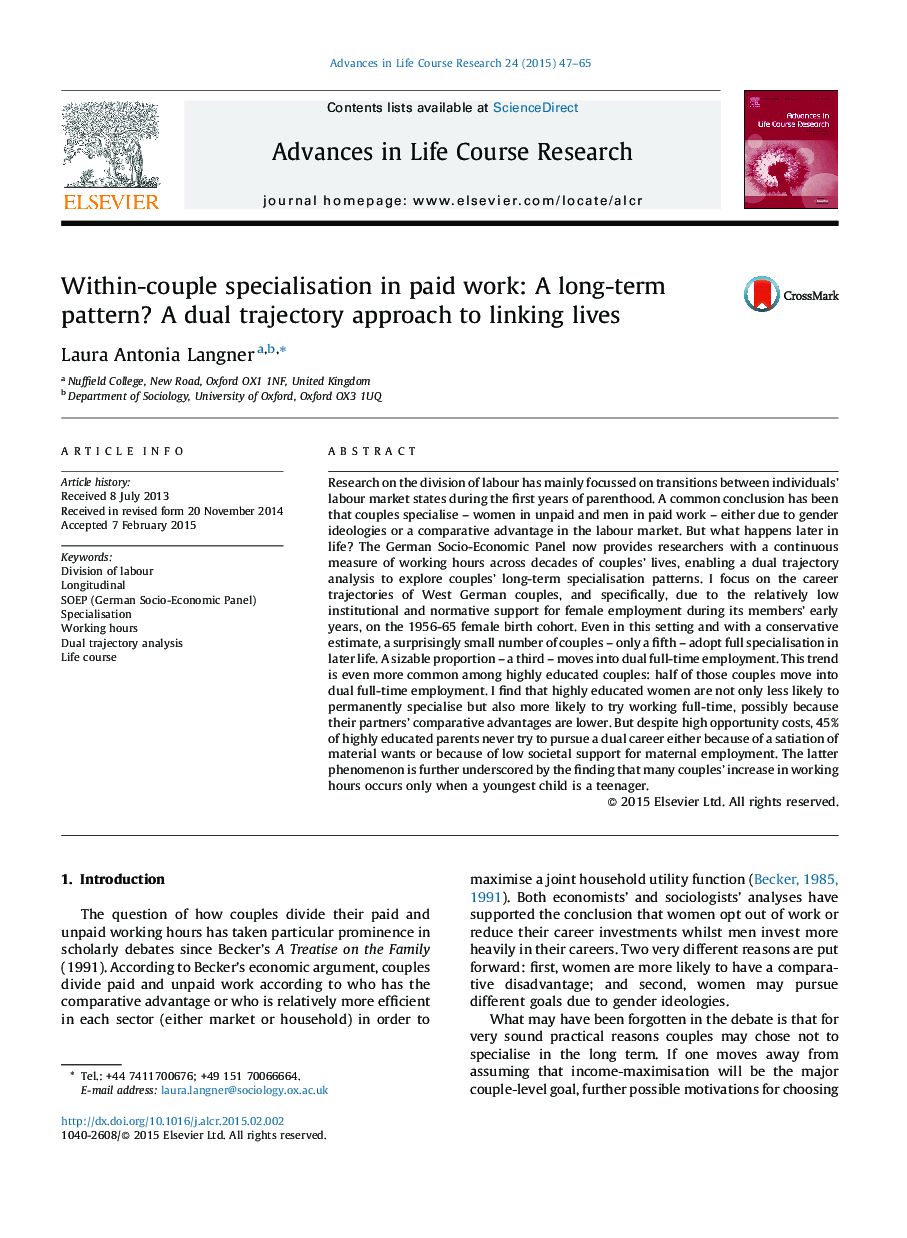| Article ID | Journal | Published Year | Pages | File Type |
|---|---|---|---|---|
| 6784990 | Advances in Life Course Research | 2015 | 19 Pages |
Abstract
Research on the division of labour has mainly focussed on transitions between individuals' labour market states during the first years of parenthood. A common conclusion has been that couples specialise - women in unpaid and men in paid work - either due to gender ideologies or a comparative advantage in the labour market. But what happens later in life? The German Socio-Economic Panel now provides researchers with a continuous measure of working hours across decades of couples' lives, enabling a dual trajectory analysis to explore couples' long-term specialisation patterns. I focus on the career trajectories of West German couples, and specifically, due to the relatively low institutional and normative support for female employment during its members' early years, on the 1956-65 female birth cohort. Even in this setting and with a conservative estimate, a surprisingly small number of couples - only a fifth - adopt full specialisation in later life. A sizable proportion - a third - moves into dual full-time employment. This trend is even more common among highly educated couples: half of those couples move into dual full-time employment. I find that highly educated women are not only less likely to permanently specialise but also more likely to try working full-time, possibly because their partners' comparative advantages are lower. But despite high opportunity costs, 45% of highly educated parents never try to pursue a dual career either because of a satiation of material wants or because of low societal support for maternal employment. The latter phenomenon is further underscored by the finding that many couples' increase in working hours occurs only when a youngest child is a teenager.
Related Topics
Physical Sciences and Engineering
Mathematics
Statistics and Probability
Authors
Laura Antonia Langner,
